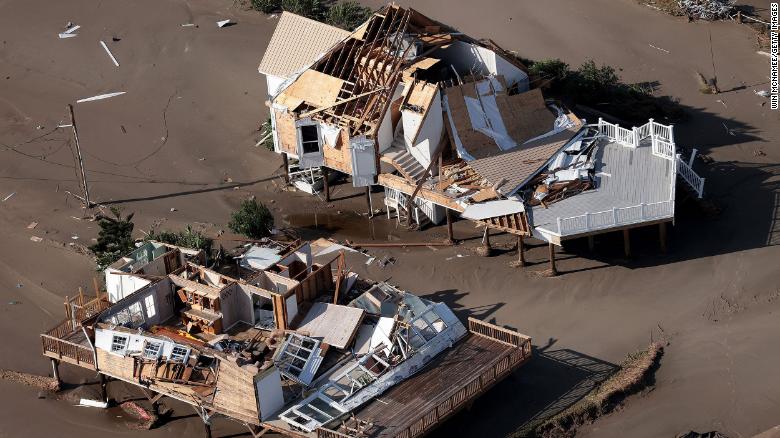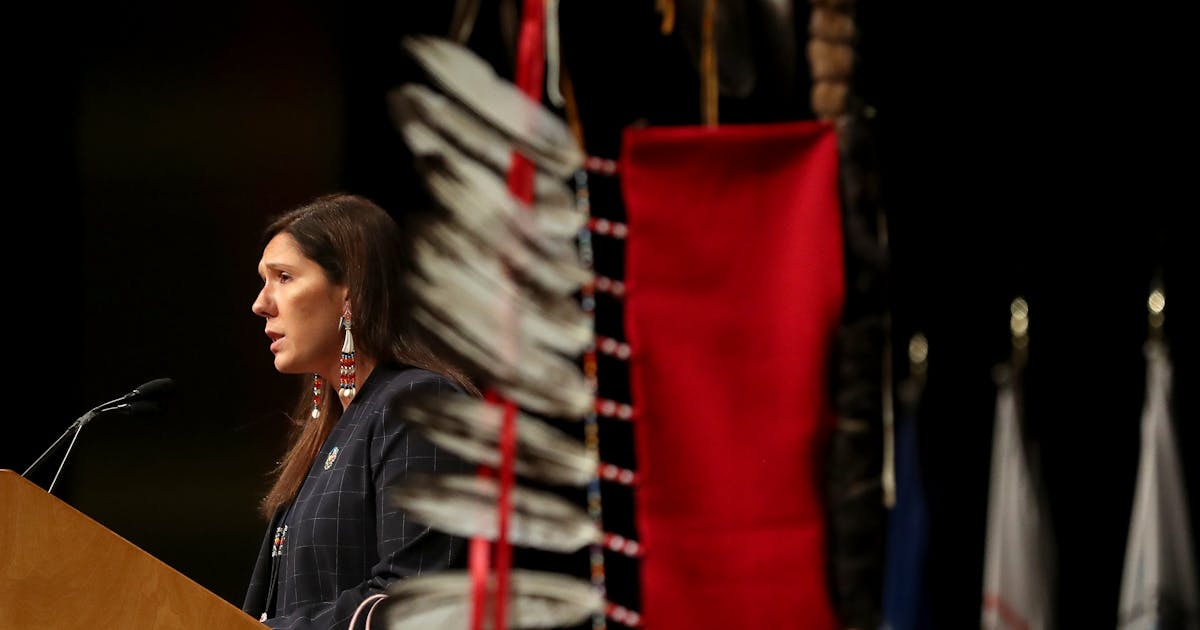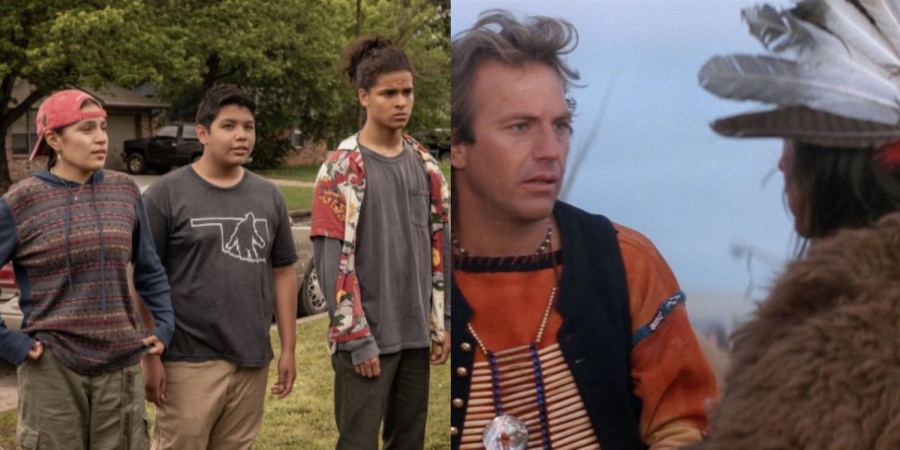Why are specific Native communities in Louisiana being left behind in the aftermath of Hurricane Ida?

Indigenous leaders along the coast say their tribes are still trying to recover about two months after Hurricane Ida wreaked havoc on Southeast Louisiana with devastating winds and floods, partly since their tribes aren’t registered with the federal government and thus aren’t eligible for direct federal assistance.
Only four of the state’s 15 tribes have passed the federal criteria for autonomous powers recognition. Ida, one of Louisiana’s most powerful hurricanes since the 1850s, wreaked havoc on the bayou region’s coastline land and left vulnerable tribe people stranded. Some tribe members, particularly the old, cannot return home, and many have been forced to leave their ancestral homelands. Many people live in the six parishes that were directly damaged by the storm.
“It’s pretty inconvenient,” says the narrator. Nothing is left for my poor folks. “Ida wrecked practically every house,” I’d rather see my neighborhood repaired than wait so long for help.” Paydaychampion may help with loans, even for those who have bad credit.
Recovery is impeded by coastal tribes’ inability to direct access to essential government services and benefits without federal recognition. Tribes recognized by the government are handled separately, much like states, after a federally declared catastrophe, allowing them to directly negotiate help and, in many circumstances, deliver it to their populations more rapidly.
“It’s a challenging assignment.” It’s as if we’re on the other side of the globe and treated as such.”
Aside from catastrophe recovery, federal status enables a tribe to be recognized as a nation inside a country, with its government, judicial system, and tax and fee structures. Furthermore, as a result of the recognition, government funding for medical care, land trusts, housing, and education has increased. Tribes may be allowed to operate casinos in the future if they go through a different approval procedure. Furthermore, some government organizations offer programs tailored exclusively for federally recognized tribes.
The US government now recognizes 574 Native American tribes.
However, more than 200 tribes are not recognized by the federal government, impacting tens of thousands of tribal people. For almost 40 years, the United Houma Nation, Louisiana’s most prominent tribe, has fought for federal recognition. The United Houma Nation’s Chief, August “Cocoa” Creppel, told NewsHour that 15,000 of his people’s houses were destroyed in Ida.
“Getting official recognition is a tremendous undertaking for my family,” Creppel said. “They’ll spend billions of dollars on other nations while disregarding their citizens. “We were the First Nation, but we feel like we’re a forgotten country,” I’ll say.
“The most difficult aspect for me as a chief and leader is watching how our people’s lives have altered in only a few hours.” He said, “And, you know, nothing I can do about it.”
“Federal recognition is critical because it would level the playing field for coastal tribes by bringing in money and supplies,” Creppel said. It might take two to four years for the tribe to get a response when they reapply for recognition. For the time being, tribal people will have to hold off on continuing their resistance until they are safe and reunited with their families.
“We can’t be battling for what is rightfully ours in Washington.”
“When a cyclone comes like this, it slows things down because we can’t fight for what we have in Washington,” Chief Creppel said. “It’s an issue because land is being washed away every day,” the author explains, “and there isn’t much left for people to escape to.”
The United Nations of Houma petitioned the Bureau of Indian Affairs in 1994, but it was denied because it did not fulfill the federal criteria for official recognition. Proof of community is one of the most crucial requirements for the national award, which may be challenging for several reasons, ranging from a lack of paperwork to increased displacement and land loss due to natural catastrophes.
According to Adam Crepelle, a United Houma Nation resident and a tribal law expert at George Mason University, proving lineage from a historic tribe is complicated. According to him, owing to a lack of essential papers, roughly 70% of existing federally recognized tribes would be unable to pass the federal acknowledgment procedure today. In this manner, he says, the process is biased.
“The Indians were illiterate. They couldn’t read or write.”
Most of it was based on oral history “‘I told the NewsHour,’ he said.
Questions concerning how the qualifications for federal recognition account for oral history or whether they are discriminatory were not immediately answered by the Bureau of Indian Affairs.
“When they were discriminated against and refused admission to public schools, many tribe members were classified as Native Americans,” Crepelle added. “However, the Bureau of Indian Affairs claims that we are not a tribe.”
“As a consequence of the storm, the tribes have gotten a lot of attention. Hopefully, the Houmas’ and others’ plights and murky legal conditions will become clearer as a result of this emphasis. “Congress has the power to fix this tomorrow and approve the legislation,” Crepelle said.
According to the Houma Nation’s leader, it’s the correct thing to do. “We’re not asking for something we don’t already have.” They seized what was rightfully ours and are attempting to persuade us that we are not who we say we are. “Just do the right thing,” Chief Creppel added, “and respect our people because we’ve always been the same tribe.”
Only 14 full-time inhabitants’ dwellings remain in the hamlet, and two-thirds of them have been severely damaged. Many of the still-standing buildings had been torn apart to be unrecognizable.
“It’s difficult to provide aid when everyone is dispersed.” It’s a dreadful situation. We used to bring assistance from home to house, but now the island is deserted. So far, we’ve received practically no help.” Naquin remarked. We’d be better off if we were globally renowned since we’d be able to skip the state and parish entirely. We have the opportunity to assist our pals.” Chief Naquin expects the tribe to be ready to reapply for federal status by next year.
Chris Brunet’s house’s falling roof and walls on Isle de Jean Charles caused significant damage. In the preceding 70 years, the island has lost almost all its landmass. More members of the tribe have been dispersed due to the recent storm. While some wonder how long southeast Louisiana’s coastal villages will survive, a sign in front of Brunet’s wrecked house says firmly that “Isle de Jean Charles is not dead; climate change stinks.”
“Recovery is a lengthy and winding road.”
A lot is beyond our control, “Brunet told NewsHour from his home that he was overcome with emotion. Despite the terrible destruction, the island does not seem to be doomed, but some individuals have returned. The Isle of Jean Charles is thriving. Even though some group members have left, we must make every effort to keep as much of the group together as possible.
Theresa Dardar and her husband, Donald Dardar, the Pointe-Au-Chien tribe’s co-chairman, have worked tirelessly to keep the Pointe-Au-Chien community intact. Only seven of the 80 residences at lower Pointe-Au-Chien are habitable. The pair worked with their friends to turn the one-room community center into a store where anybody could “free shop” for essentials like canned meals, water, diapers, and beverages. The fishing community 70 miles south of New Orleans has also benefited from donations and contributions to a GoFundMe campaign.
“It’s a challenging assignment.” It’s as if we’ve arrived on the moon and been treated as such. Theresa Dardar said, “We’re generally last for everything.” The narrator says, “Our people are dispersed.” In Mississippi, we have relatives. There are a few people that live here. I just have no idea where everyone is. Almost everyone wants to return to their first residence. They claim to be rebuilding to ensure the community’s survival.”
Dardar claims that recognition will break down many obstacles for tribes combating climate change, eroding their traditions and land with each more powerful storm.
In this case, many people in this close-knit community wish to rebuild even more vital.
“Well, we’re all connected, and you don’t break up a family,” Dardar said. Would you want to accompany us on a trip? Is there a state where everyone could live free of natural disasters? You’ll have to remove the people who live in tornado alleys, forest fires, mudslides, and droughts. “Would you want to travel someplace with us?
She said, “We’re out of time.” “I believe a greater storm will annihilate this town.” There’s a lot on the line for us. The time for the American Indian to stand out has long passed. We’re a people who are much too reserved.”




